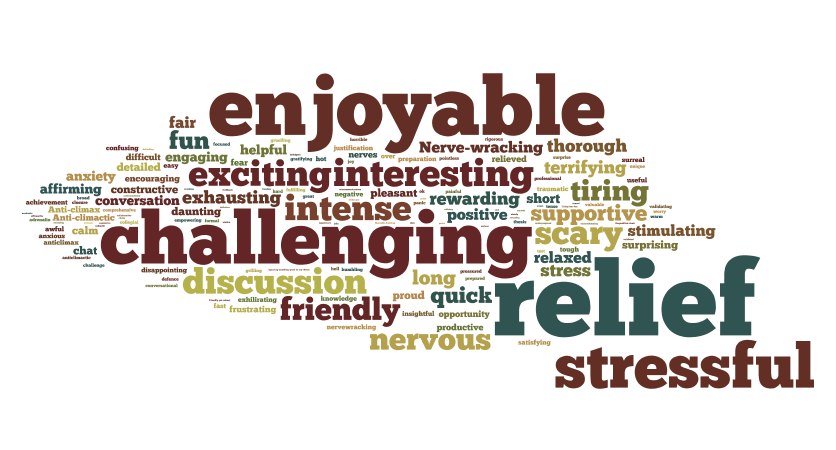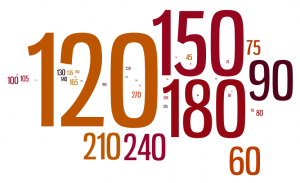Last year I asked seven questions about the viva, got 302 responses to them, and used the results to start to get an idea of what the viva in the UK is like. I did this because I’m passionate about helping PhD candidates prepare for the viva, and I thought that I could:
- find out more information to help them have reasonable expectations;
- see if there were negative aspects in the experiences, then find ways to overcome them for future candidates;
- see what positives were emphasised, and share these to help people prepare better.
As my previous series of posts showed, I think that there are some interesting results in the data, and I know that in my work personally – both on the Viva Survivors Podcast and on the viva preparation courses that I run – this has had a huge impact in terms of helping people. At the same time, I view last year’s survey as a starting point. This is the beginning, and not the conclusion of my research into the viva experience.


